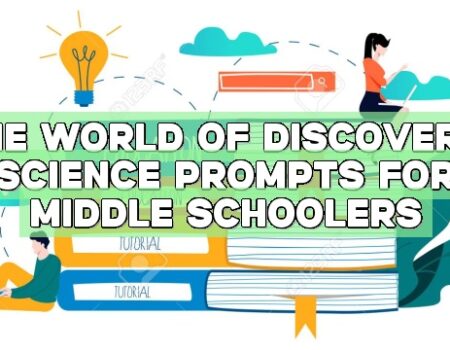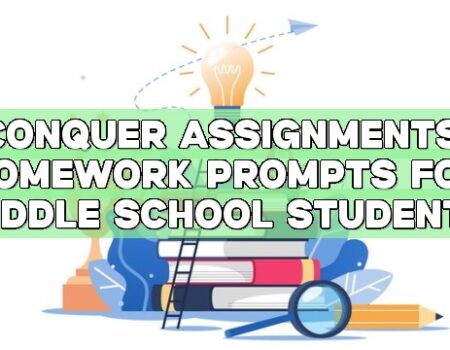If you’re a high school student looking for history essay prompts, you’ve come to the right place. Learning about historical events and figures is essential for intellectual growth and igniting curiosity. However, it can be challenging to find the right topics to explore. That’s why we’ve curated a list of engaging history essay prompts to help you get started on your journey.
Key Takeaways
- History essay prompts can help high school students develop critical thinking and research skills.
- Exploring historical events can lead to a deeper understanding of society and culture.
- Using conversational AI, such as ChatGPT, can unlock creative potential for brainstorming, research, and writing assistance.
Why Use History Essay Prompts?
History essay prompts are an excellent way to engage high school students with potentially complex historical events. In addition to being fascinating and informative, history essay prompts can also offer a range of benefits for students, including:
- Stimulating critical thinking: By asking students to reflect on complex historical events, essay prompts can help develop critical thinking skills and encourage students to consider multiple perspectives.
- Developing research skills: Students must conduct research to compose a well-informed response to any history essay prompt. This research can help sharpen a student’s ability to find, synthesize, and analyze information.
- Deepening knowledge: By exploring various historical events through essay prompts, students will likely gain a deeper understanding of history. With this knowledge, they can apply it in other subjects or use it in their personal lives.
As well as these benefits, history essay prompts can also ignite a passion for learning in students and drive intellectual growth. By encouraging students to explore the past, they can potentially uncover new interests and become more involved in the learning process.
Top 5 Historical Events to Explore
History provides a vast array of events that high school students can explore and write about. Here are five historical events that are particularly interesting and relevant:
| Event | Description |
|---|---|
| The American Revolution | The American Revolution was a pivotal moment in world history, as it marked the rise of the United States as a global superpower. Students can explore the causes, events, and aftermath of the revolution, such as the establishment of the US Constitution and the significance of the Declaration of Independence. |
| The French Revolution | The French Revolution was a major turning point in European history, leading to the fall of the French monarchy and the rise of Napoleon Bonaparte. Students can examine the causes of the revolution, such as the Enlightenment ideas of liberty, equality, and fraternity, as well as the impact of the revolution on contemporary France. |
| The Holocaust | The Holocaust was a tragic event that saw the systematic extermination of six million Jews by the Nazi regime during World War II. Students can delve into the historical context, causes, and consequences of the Holocaust, as well as the lessons that can be learned from this dark chapter in human history. |
| The Civil War | The Civil War was a defining moment in American history, as it led to the abolition of slavery and the preservation of the Union. Students can explore the causes and consequences of the war, such as the economic, social, and political factors that led to the conflict, as well as the enduring legacy of the war on contemporary American society. |
| The Space Race | The Space Race was a competition between the United States and the Soviet Union to explore space and demonstrate technological superiority during the Cold War. Students can investigate the causes and consequences of the Space Race, such as the impact of space exploration on science, technology, and society, as well as the political and ideological implications of the race. |
These are just a few of the many historical events that high school students can explore and write about. By choosing meaningful and inspiring topics, students can enhance their critical thinking skills, expand their historical knowledge, and develop their writing abilities.
Prompt 1: The Impact of World War II on Society
World War II was a global conflict that lasted from 1939 to 1945, involving many of the world’s nations. The war had a profound impact on society, both during and after the conflict. It changed the course of history and shaped the modern world in many ways.
When exploring the impact of World War II on society, there are several areas to consider. One of the most significant was the role of women in the workforce. With men serving in the military overseas, women were needed to fill jobs traditionally held by men. This led to a major shift in gender roles and paved the way for greater gender equality in the workplace.
The war also had an impact on civil rights. African Americans and other minority groups served in the military alongside their white counterparts, yet they faced discrimination and segregation upon their return home. This sparked a renewed push for civil rights and paved the way for the Civil Rights Movement of the 1950s and 60s.
Another impact of World War II was the rise of the United States as a global superpower. The US emerged from the war as one of the world’s strongest and most influential nations, setting the stage for its dominant role in international affairs in the postwar era.
Sample Response:
“The impact of World War II on society cannot be overstated. From the role of women in the workforce to the fight for civil rights, the war changed the course of history. The sacrifices made by those who served in the military and on the home front paved the way for a more just and equitable society. The war also marked a turning point in international affairs, with the United States emerging as a global superpower and shaping the world as we know it today.”
– written by ChatGPT
Prompt 2: The Civil Rights Movement and Its Legacy
The Civil Rights Movement marked a pivotal moment in American history, one that continues to shape society today. Exploring this topic can help high school students understand the struggle for equality and justice that has defined American society in recent times.
The legacy of the Civil Rights Movement can be felt in numerous aspects of contemporary life, from political representation to media representation. By examining the key events and figures of this movement, students can gain a deeper understanding of the challenges faced by marginalized communities and the progress made towards a more equitable society.
The Key Figures and Events of the Civil Rights Movement
The Civil Rights Movement was marked by numerous figures who fought for change in different ways. Some of the most prominent include:
| Figure | Contribution |
|---|---|
| Martin Luther King Jr. | Organizer of peaceful protests and advocate for nonviolence |
| Malcolm X | Activist for black pride and empowerment |
| Rosa Parks | Refused to give up her seat on a Montgomery, Alabama bus in 1955, sparking a boycott of the city’s bus system |
These and many other figures played crucial roles in pushing for change during the Civil Rights Movement. Some of the key events that defined this period include:
- The Montgomery Bus Boycott
- The March on Washington
- The Voting Rights Act of 1965
The Legacy of the Civil Rights Movement
The Civil Rights Movement had a profound impact on American society, and its legacy is still felt today. For example:
- The Voting Rights Act of 1965 laid the foundation for greater political representation and enfranchisement for marginalized communities.
- The Civil Rights Act of 1964 outlawed discrimination on the basis of race, color, religion, sex, or national origin, laying the groundwork for legal protections against discrimination.
- The movement brought greater visibility to issues of racial inequality and injustice, paving the way for continued activism and advocacy in the present day.
Overall, exploring the Civil Rights Movement and its legacy is a powerful way to understand the challenges and triumphs of marginalized communities in the United States. By examining this topic, high school students can gain a deeper appreciation for the struggles and progress made by those who fought for greater equality and justice.
Prompt 3: The Renaissance Era: Art, Science, and Culture
One of the most intriguing periods in history was the Renaissance era, a period of cultural, artistic, and scientific rebirth that lasted from the 14th to the 17th century. The Renaissance era marked the transition from Medieval Times to Modernity, and it witnessed an explosion of intellectual and artistic activity that continues to influence the world today.
The Renaissance era is an ideal topic for high school students to explore in their history essays. The period saw the rise of great artists like Leonardo da Vinci, Michelangelo, and Raphael, as well as significant scientific advancements by great minds like Galileo Galilei and Johannes Kepler. It was also marked by notable literary works such as William Shakespeare’s plays and Niccolò Machiavelli’s The Prince.
| Renaissance Era | Significance |
|---|---|
| Artistic rebirth | The Renaissance era saw a renewed emphasis on humanism and individualism, as well as a celebration of the beauty and complexity of the natural world. Artistic works during this period reflected these ideals and continue to inspire artists today. |
| Scientific revolution | Advancements in scientific knowledge during the Renaissance era laid the foundation for modern science and technology. New discoveries in fields such as astronomy, mathematics, and anatomy revolutionized the way people viewed the world around them. |
| Cultural impact | The Renaissance era had a profound impact on Western culture, shaping everything from architecture and literature to politics and religion. The period also saw the rise of humanism and secularism, which continue to shape modern society. |
Prompt 3 challenges students to explore the impact of the Renaissance era on art, science, and culture. Students might select a specific artist, scientist, or writer to analyze or examine the impact of the Renaissance on a particular field or region. Additionally, students might explore the rise of humanism and individualism during the Renaissance and how these ideals continue to shape modern society.
“The Renaissance era was a time of great change and intellectual curiosity. By studying this period, students can gain a deeper understanding of the evolution of art, science, and culture, as well as the way these ideas continue to shape our world today.”
As an example of an essay response, ChatGPT suggests starting with an examination of Leonardo da Vinci’s impact on art and science during the Renaissance era. Da Vinci’s ability to combine art, science, and invention make him a fascinating subject for exploration. His artistic works, such as the Mona Lisa and The Last Supper, continue to inspire admiration and wonder today, while his scientific experiments and explorations laid the foundation for modern engineering and physics.
Overall, the Renaissance era presents a wealth of opportunities for high school students to explore, and Prompt 3 is an excellent starting point for essays that examine the influence of this fascinating period on art, science, and culture.
Prompt 4: The Industrial Revolution: Transforming Society
The Industrial Revolution was a period of rapid industrialization that began in the late 18th century and lasted until the mid-19th century. It had a profound impact on society, transforming the way goods were produced and consumed, and paving the way for modern economies.
The Industrial Revolution ushered in new modes of production, such as the factory system, which enabled the mass-production of goods. This, in turn, led to a surge in productivity, as well as the development of new technologies like the steam engine, which powered machines and revolutionized transportation.
| Effects of the Industrial Revolution | Examples |
|---|---|
| Rapid urbanization | Cities grew at an unprecedented rate as people flocked to urban centers in search of work |
| New social classes | The emergence of the bourgeoisie (the middle class) and the working class |
| Exploitation of labor | Working conditions were often hazardous, and workers were often paid low wages |
| Increased material wealth | The Industrial Revolution paved the way for modern consumer societies and raised standards of living |
The Industrial Revolution also had far-reaching consequences for the environment, as the burning of coal for fuel led to increased air pollution and the destruction of natural habitats. Nonetheless, it remains one of the most significant periods in human history, and its legacy can still be felt today.
“The Industrial Revolution was a time of great change, and it had both positive and negative effects on society. On the one hand, it led to unprecedented levels of productivity and wealth creation. On the other hand, it also resulted in the exploitation of workers and irreparable damage to the environment. However, its impact cannot be denied, and we continue to live with its consequences today.” – ChatGPT
Prompt 5: The Cold War: Ideologies and Global Tensions
The Cold War, which lasted from the end of World War II until the fall of the Soviet Union in 1991, was a pivotal moment in world history. It was a period characterized by ideological tensions, proxy wars, and the arms race between the United States and the Soviet Union. This prompt invites high school students to explore the global impact of the Cold War, how it shaped international relations, and how it continues to influence the world today.
| Key Players | Events | Implications |
|---|---|---|
| The United States | Korean War, Cuban Missile Crisis | Emergence as a superpower |
| The Soviet Union | Warsaw Pact, Soviet-Afghan War | Spread of communism |
| China | Cultural Revolution | Opening to the West |
The Cold War had far-reaching implications on global politics, as well as social and cultural issues. It influenced everything from popular culture to scientific discoveries and technological advancements. By examining this era, students can gain a deeper understanding of the complex power dynamics that govern international relations and appreciate how history shapes contemporary events.
“The Cold War was a period of intense rivalry and political tension, but it was also a time of great technological innovation and scientific achievement. From space travel to the internet, the Cold War left an indelible mark on modern society.” – ChatGPT
History Essay Prompts and ChatGPT: Unlocking Creative Potential
If you’re looking for a creative and engaging way to inspire high school students to explore historical events, look no further than history essay prompts and ChatGPT. By leveraging conversational AI in the form of ChatGPT, students can tap into their creative potential and unleash their curiosity about the past.
Using history essay prompts can help students think critically and develop their research skills, while also driving intellectual growth and deepening their understanding of historical events. However, coming up with the right prompts can be a challenge. That’s where ChatGPT comes in.
ChatGPT: A Powerful Tool for Brainstorming and Research
ChatGPT is a conversational AI technology that can help students generate new ideas and explore historical events in greater depth. By leveraging its natural language processing capabilities, ChatGPT can assist with brainstorming topics, researching key events and figures, and even helping students draft their essays.
Using ChatGPT, students can easily explore a variety of historical topics, from the Renaissance era and the Industrial Revolution to the Civil Rights Movement and the Cold War. With ChatGPT’s help, students can unlock their creative potential and develop a deeper appreciation for history.
Unlocking Creative Potential with ChatGPT
By using ChatGPT to develop historical essay prompts, students can tap into their creative potential and explore a variety of topics and ideas. With its ability to generate new ideas and provide research assistance, ChatGPT can help students craft compelling essays that engage their audience and showcase their critical thinking skills.
Whether you’re a teacher looking to inspire your high school students or a student looking to explore the past in a new and exciting way, history essay prompts and ChatGPT are powerful tools for unlocking your creative potential. So start exploring today and see where your curiosity takes you!
FAQ
Q: What are history essay prompts?
A: History essay prompts are specific topics or questions that students can choose to write about when assigned an essay on a historical subject. They help guide students in their research and writing process by providing a focused and engaging topic to explore.
Q: Why should high school students use history essay prompts?
A: History essay prompts are beneficial for high school students because they stimulate critical thinking skills, encourage in-depth research, and promote a deeper understanding of historical events. They also help students develop their writing skills by providing a clear and structured topic to write about.
Q: How can history essay prompts ignite curiosity in students?
A: History essay prompts can ignite curiosity in students by presenting them with intriguing historical topics and encouraging them to explore new areas of knowledge. They inspire students to ask questions, seek answers, and develop a passion for learning about the past.
Q: Where can high school students find history essay prompts?
A: High school students can find history essay prompts in textbooks, online educational resources, or through their teachers. They can also utilize chatGPT, a conversational AI tool, which provides a wide range of historical prompts and assistance in brainstorming ideas.
Q: How can chatGPT help with history essay prompts?
A: ChatGPT can help with history essay prompts by providing students with a virtual assistant that can assist in brainstorming ideas, conducting research, and offering writing guidance. It can also generate sample responses based on the given prompts, helping students understand how to approach their essays.
Q: Are history essay prompts suitable for all historical periods?
A: Yes, history essay prompts can be tailored to suit any historical period. Whether it’s ancient civilizations, medieval times, or modern events, prompts can be designed to cover a wide range of historical topics, allowing students to explore various time periods and subjects of interest.









